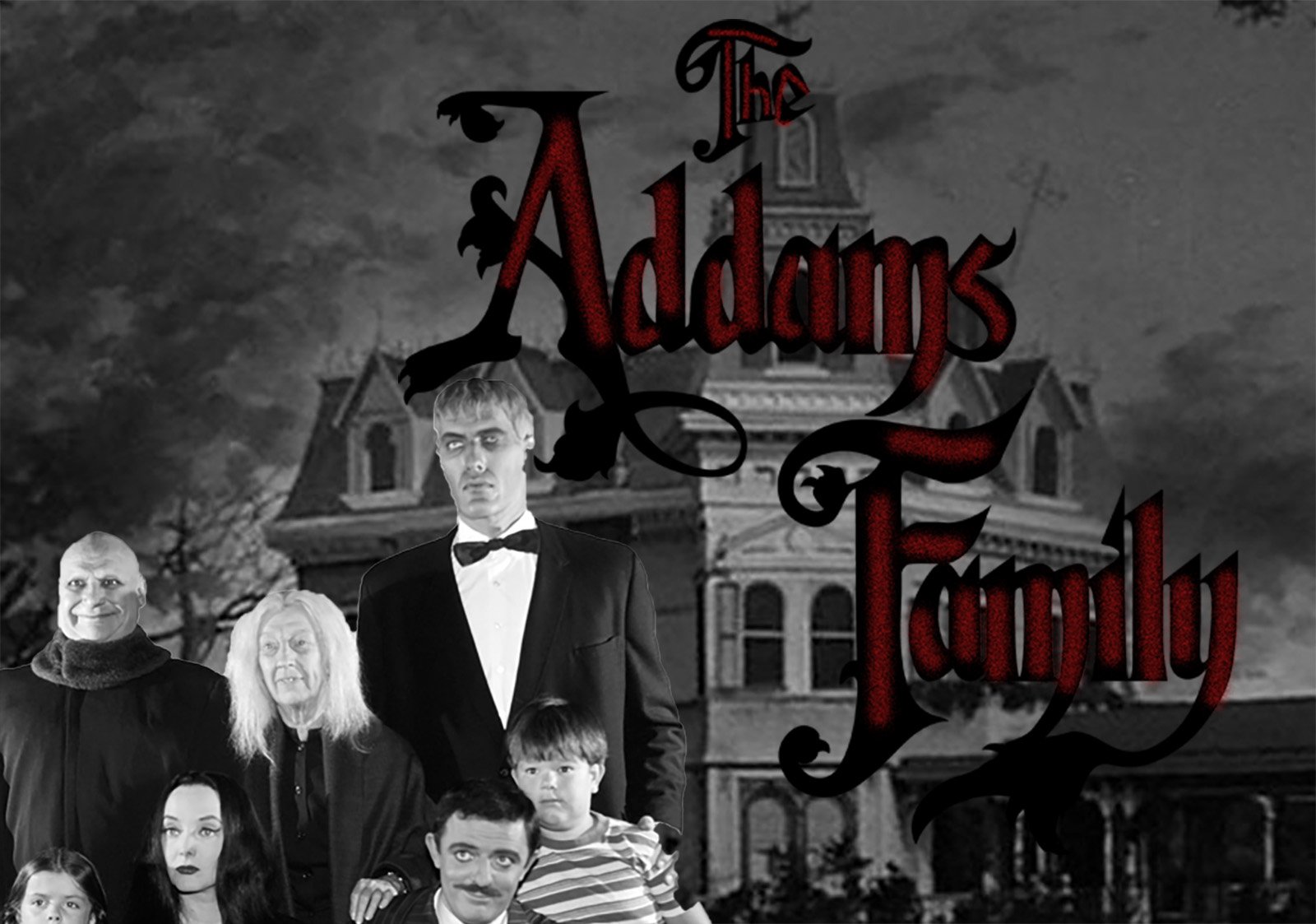Opinion | What we can learn from the Addams family
The Addams family was originally created as an inversion of the stereotypical American family. Because of this, we can use the Addams to examine what our society values. Photo collage by DANIEL PEARSON, staff photographer
Their own theme song describes them as creepy, spooky, mysterious and altogether ooky. In spite of this, the Addams family is one of the most functional, loving families to ever appear on television.
Emilia Cuevas Diaz, opinions editor
Originally the Addams family was conceived as a satirical inversion of the ideal ‘50s sitcom family. From their museum-like house to their interest in the macabre, the Addams family is the exact opposite of what we’d consider the perfect family. But if we take a closer look, what does that say about what our values are?
If the Addams family is the opposite of the model family, it stands to reason to assume that we can look at them and see where our priorities lie, or to be exact where our priorities are not.
Let’s think back on the picture perfect American family. You have the two kids, usually a boy and a girl, the stay-at-home mom and the breadwinner dad. Everyone in the family has an assigned role and a typical way of behaving.
So what does the Addams family say about us with its inverted roles?
In the Addams family, Wednesday and Pugsley fulfill the roles of the kids, Morticia as the mother and Gomez as the father.
In the stereotypical sitcom family the kids usually fight a lot. The boy tends to be more focused on playing outside, while the girl tends to be more interested in dolls and dresses. The mom usually takes care of the house and attends to her husband's needs while the father goes to work and rarely interacts with the kids. The married couple tends to feel like they don’t like each other anymore.
Unlike the typical sitcom father, Gomez is happy about the fact that he is not focused on his work or even remotely close to good at it. He treats money more like a joke than a necessity. He is also incredibly passionate and affectionate towards his wife as well as kind and helpful to everyone he considers a friend.
Morticia is caring and affectionate towards both her husband and her children. She is also seductive and sensual, which is often portrayed in her scenes with her husband. She is constantly torn between the love and care she has for her children and her desire to pursue the dark arts.
Pugsley regards danger as playful and imaginative, as well as an older brother. He often helps Wednesday’s schemes with his inventions and creative ideas, though sometimes he loses his individuality in favor of following his sister.
The daughter of the Addams, Wednesday is unapologetically macabre and uninterested in all things girly. She consistently rejects things like boys and dresses for her own sinister interests and she always speaks her mind. Additionally, Wednesday is entirely against having her own children when she grows up, as she would rather spend her time in her pursuit of darkness.
While we have made a lot of progress since the 1950s and don’t always feel the need to adapt to those confined expectations and roles, I still think there’s a lot we can learn from the Addams family and their rejection of what is thought to be the norm.
I propose that we should all aspire to be like the Addams family. We should all strive to be bravely unique and outspoken like Wednesday, inventive and playful like Pugsley, fiercely loyal and ambitious like Morticia and as optimistic and passionate as Gomez.
All families should strive to be as accepting and loving as the Addams family, rather than trying to simulate the “perfection” of the typical sitcom family, because the truth is people are rarely that simple to define.
The Addams family teaches us that the support we show one another matters far more in our relationships than what we’re individually interested in. Whether we are interested in seeking the dark forces or in being a good housewife, the only thing that matters is that our home is a place of unconditional love and support where we are allowed to be ourselves.


